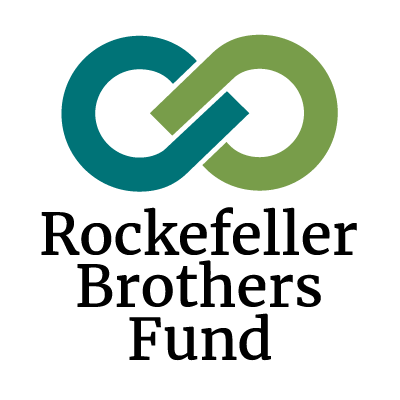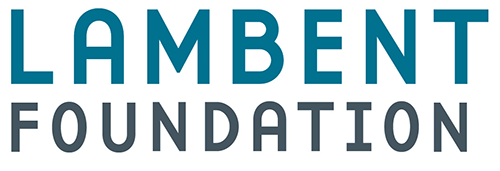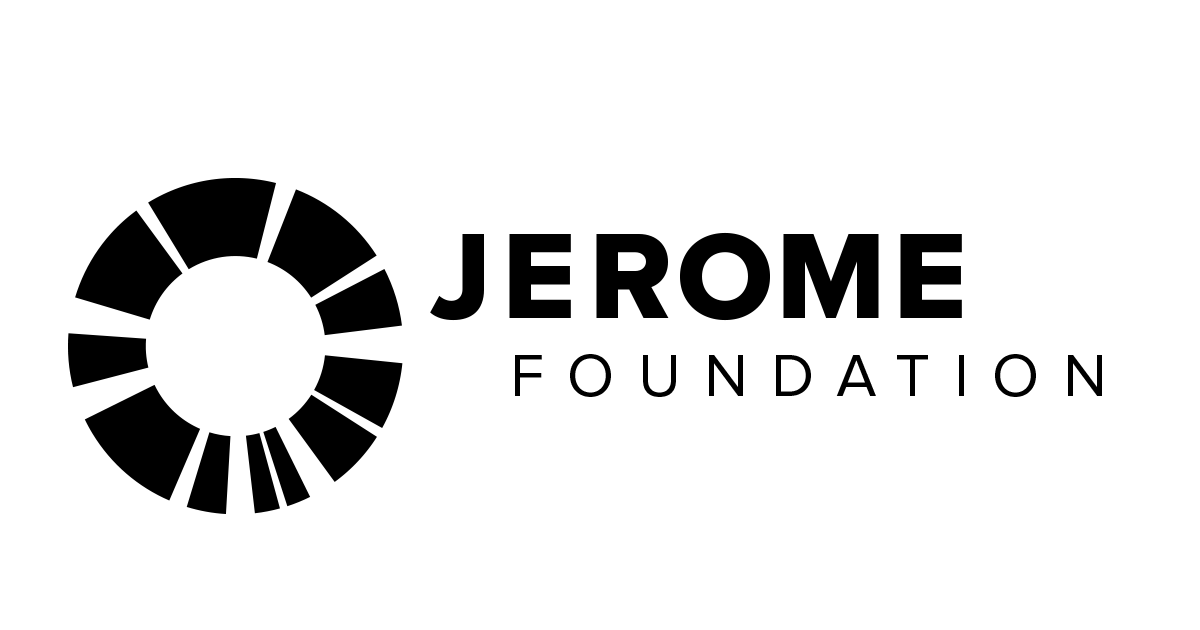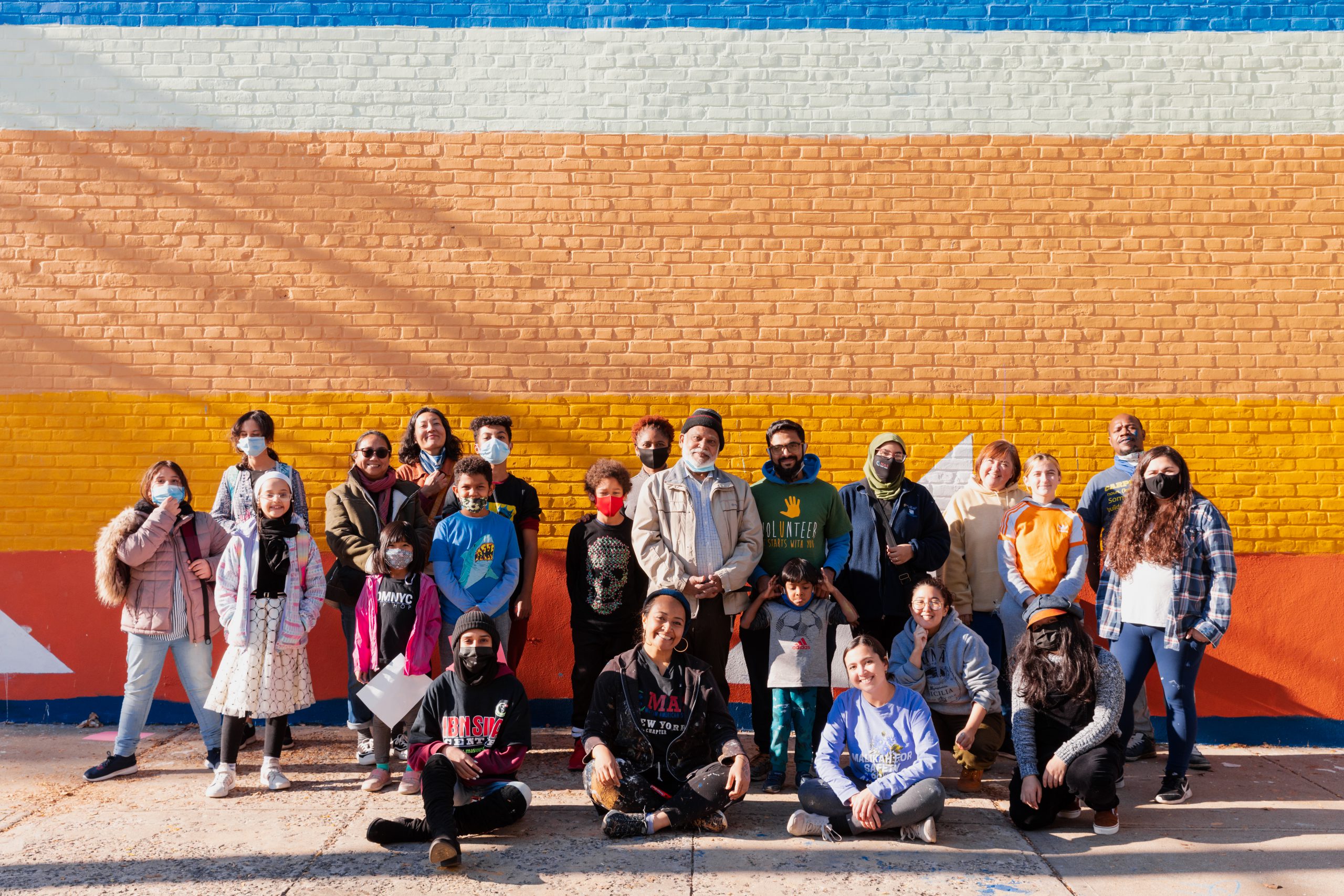Exhibitions - What would the world look like, taste like, sound like, smell like, and feel like if ALL women were safe and could step into their power?
Malikah
What would the world look like, taste like, sound like, smell like, and feel like if ALL women were safe and could step into their power?
10.02.21 – 02.13.22
Year of Uncertainty (YoU)
Image: Group photograph in front of the mural-in-progress at MAS Ibn Sina Youth Center in Astoria, Queens. Community Paint Day with Malikah and artist Vaimoana Niumeitolu. Photo credit: Film By Two / Zynab Cewalam
Year of Uncertainty Community Partner, Malikah, was founded by Rana Abdelhamid at the age of 16 in post 9/11 Queens to address the gender and hate based violence facing her community. Malikah is now a global collective of women and nonbinary trainers committed to building safety and power for themselves and their communities. Over the past ten years, Malikah has conducted healing spaces and trained over 20,000 people in dozens of cities across the globe in self-defense, economic empowerment, and organizing. For Year of Uncertainty, Malikah embodies these ideas with a presentation of the mural project and video “What would the world look like…” and video introduction Self Defense Toolkit together.
For those impacted by the intersections of various systems of oppression, Malikah practices visioning and collective understanding as critical tools for healing. “What would the world look like, taste like, sound like, smell like, and feel like if ALL women were safe and could step into their power?” compiles reflections on this visioning question from members of the Malikah community, including women and gender expansive people who work or live in Queens. While these reflections are currently on view as a video in the QM galleries, they are also the basis for an upcoming mural project. Malikah’s Program Manager Deena Hadhoud is collaborating with artist Vaimoana Niumeitolu to create a community mural inspired by these responses, at MAS Ibn Sina Youth Center in Astoria, Queens. To be completed in 2022, the project aspires to be a symbol of resilience, joy, and taking back the streets!
The Self Defense Toolkit is a video introduction to techniques taught by Malikah instructors’ self defense courses. Malikah believes that with every self defense technique we deconstruct the notion that our bodies are not our own; and through various martial arts styles, they have devised a curriculum which centers on de-escalation through empowering one to use the power of their body and voice.
Malikah is a collective of trauma-informed women trainers, organizers and facilitators dedicated to building power for themselves and their communities. Through their train-the-trainer model, they equip women in their communities with four programmatic pillars 1) healing 2) self-defense 3) organizing and 4) financial literacy. They host intensive weekend long bootcamps, gender justice summits, recurring weekly sessions and one-off programs to scale access to their curriculum through organizers and trainers. Malikah’s movement is committed to a gender justice framework that amplifies the leadership of the most marginalized women in their communities, women who have been carrying all of us all along. Founded in Astoria, Queens by Rana Abdelhamid in 2010, the volunteer team has reached over 20,000 women and girls in 20 cities across the globe.
Discover Images of the Exhibition
Supporters
The Year of Uncertainty artist residencies and community partnerships are made possible by generous support from the Andrew W. Mellon Foundation, Rockefeller Brothers Fund, the Lambent Foundation, and the Jerome Foundation. Major funding for the Queens Museum is generously provided by the New York City Department of Cultural Affairs, the New York State Council on the Arts with the support of Governor Kathy Hochul and the New York State Legislature.





